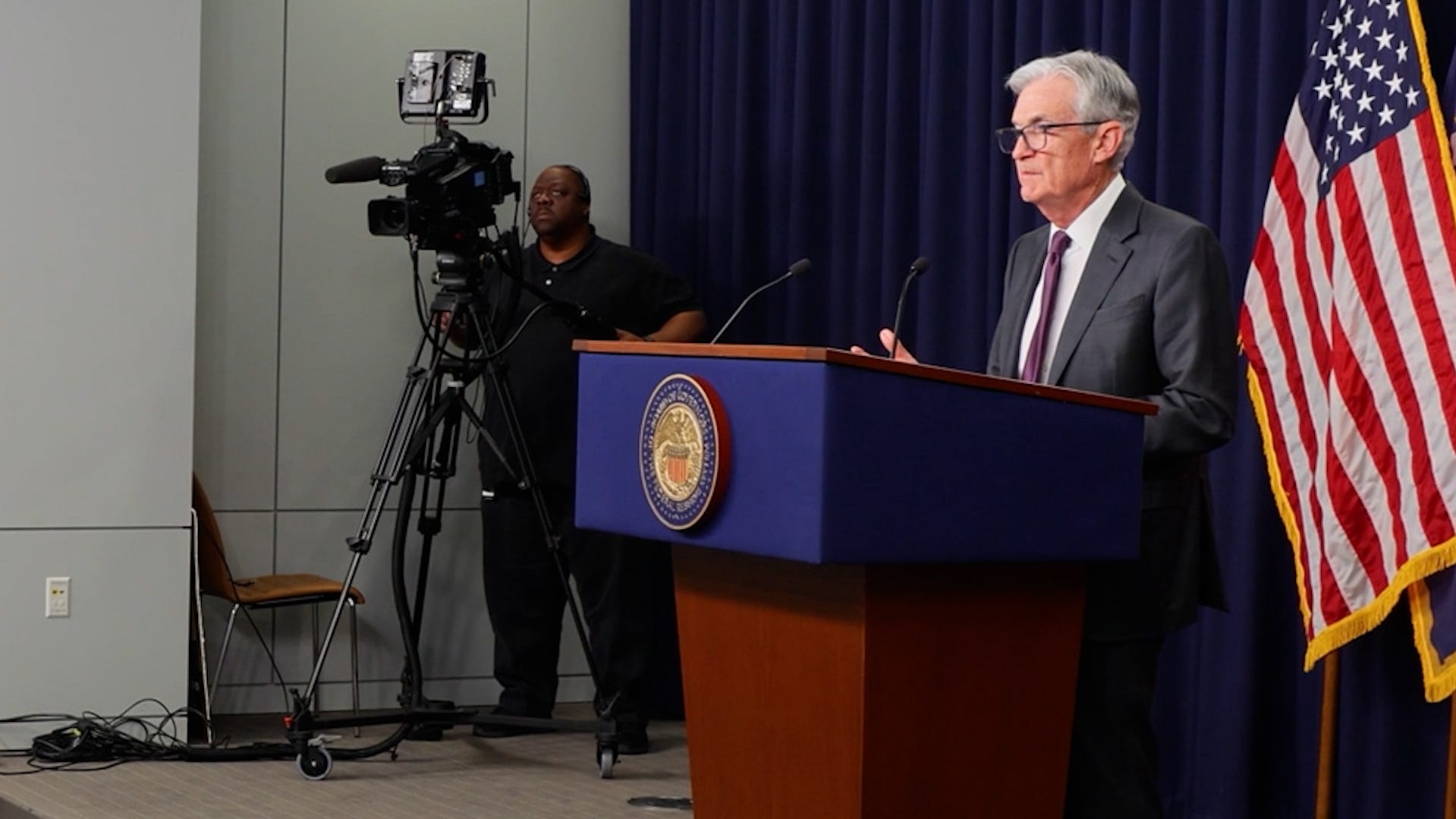
Powell to remain Fed chair, ‘no intention’ on firing him, Trump says
President Donald Trump says he has no intention on firing Federal Reserve chairman Jerome Powell, but he would like to see interest rates cut.
- Concerns about trade policy, particularly tariffs and a potential trade war, significantly increased.
- Market turmoil, including Treasury market functioning and foreign divestment of U.S. assets, gained attention.
- Despite some market stabilization, asset valuations and residential real estate prices remain high.
WASHINGTON − Rising risks around global trade, general policy uncertainty and the sustainability of U.S. debt topped the list of potential risks to the U.S. financial system in a new Federal Reserve survey.
The biannual Fed survey of financial risks, out April 25, was the first since President Donald Trump returned to office, and the impact of his aggressive policy agenda was apparent, especially around tariffs. Seventy-three percent of respondents cited global trade risks as a top concern, more than twice the number reported in November. Half cited policy uncertainty in general as a top concern, up as well from the fall.
“Concern over changes to trade policy was the top-cited risk this cycle. While many respondents viewed tariffs as the key risk, some noted that the domestic economy could weather incremental tariffs on imported goods with only modest disruption,” the report said, adding, “Respondents considered that the potential for an escalatory trade war could have more severe consequences.”
Respondents cited “changes in government spending priorities and the extent of U.S. international engagement” as driving uncertainty.
The latest survey also found more attention focused on issues related to market turmoil, with 27% of contacts worried about functioning Treasury markets, up from 17% in the fall. Foreign divestment of U.S. assets and the value of the dollar also rose on the list of concerns.
The Fed said the “vast majority” of the 22 survey respondents, who include academics, investors and finance professionals, submitted their answers before April 2, the day Trump announced a sweeping set of tariffs on countries around the world. A week later, Trump put the most punishing levies on hold for 90 days as the administration looks to negotiate fresh trade deals.
The heightened policy uncertainty that has pushed up market volatility since Trump returned to the White House was partly offset by the Fed finding relative stability in a range of other areas.
For example, the U.S. central bank said commercial real estate prices, a long-running concern after the COVID-19 pandemic, showed signs of stabilizing. And while markets were strained in early April as liquidity was low in both stocks and Treasury bonds, the Fed said both markets remained orderly.
The Fed cautioned, however, that even after the April selloff, asset valuations remained relatively high, and residential real estate prices also were elevated.
The Fed said the U.S. banking system remained sound and resilient, as firms maintained robust capital ratios. But it did find that bank credit commitments to less regulated non-banks continued to increase.
It also cautioned that hedge fund leverage, particularly at the largest firms, was at or near historical highs, although it believes that leverage diminished in early April as funds unwound positions.
Reporting by Pete Schroeder; Editing by Dan Burns and Paul Simao

